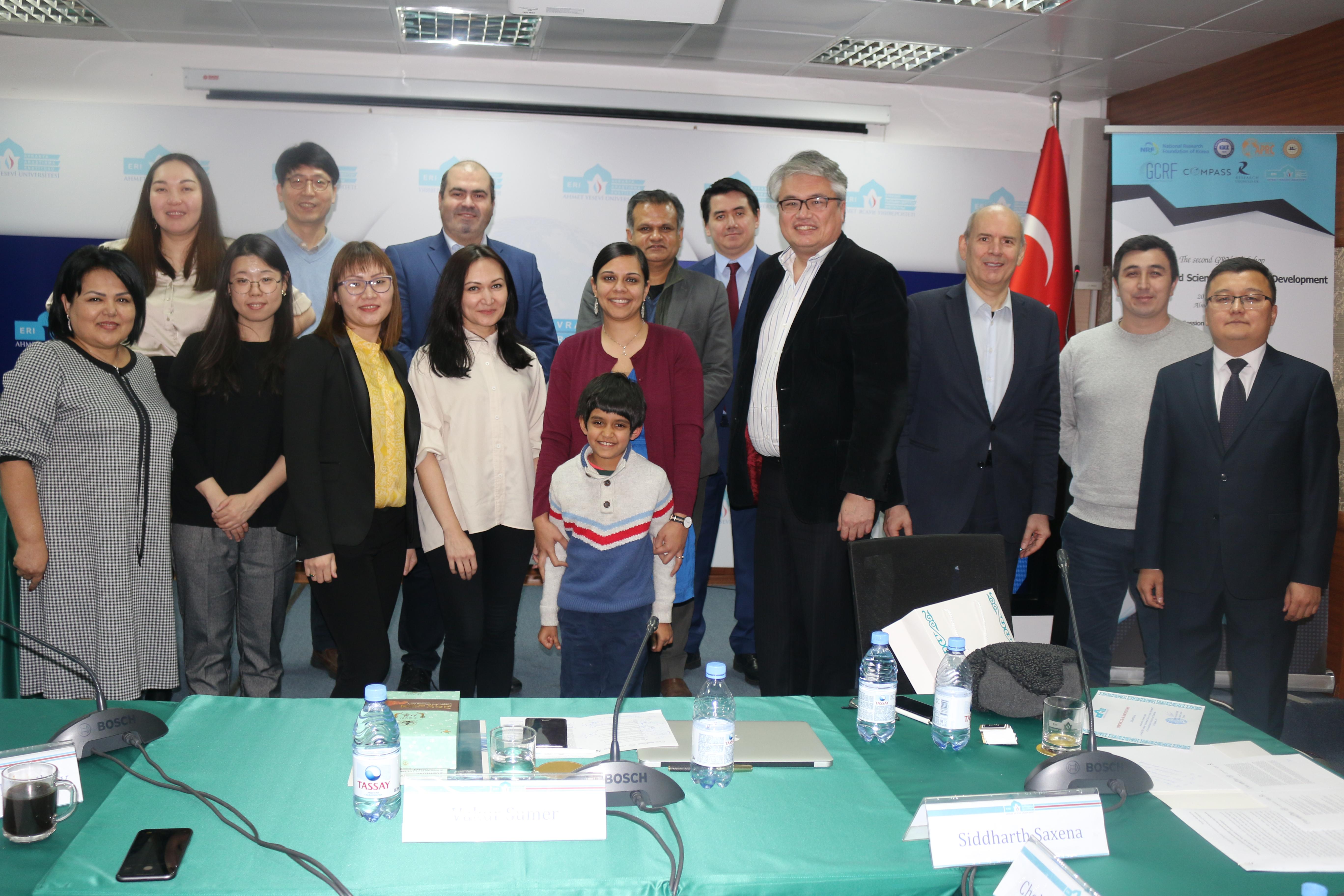
Submitted by P. Kalra on Mon, 13/01/2020 - 13:42
2nd GRN workshop: “Institutions and Science in Eurasian Development”
Almaty, Kazakhstan
20 December 2019
In partnership with Eurasian Research Institute, GCRF COMPASS Cambridge
Morning Session
10:00 AM Registration
10:30-11:15 AM Welcoming Remark
Vakur Sumer, Eurasian Research Institute of the Khoja Akhmet Yassawi International Kazakh-Turkish University
Siddharth Saxena, Cambridge Central Asia Forum & GCRF COMPASS Centre of Development Studies, University of Cambridge
Introduction
Boram Shin, APRC at Hanyang University & Global Research Network Project
11:15-12:45 AM
Session 1: Science and Knowledge in Central Asia and Eurasia
Prajakti Kalra Cambridge Central Asia Forum & GCRF COMPASS, Centre of Development Studies, University of Cambridge
Dilnoza Duturaeva, Institute of History, Academy of Sciences of Uzbekistan, Qarakhanid Turks in the Chinese Court
Sanobar Shadmanova, Institute of History, Academy of Sciences of Uzbekistan, Modern Technology and Industrialization in the 19th Century Turkestan
Boram Shin, APRC at Hanyang University
12:45-2:00 PM Lunch
Afternoon Session
2:00-4:00 PM
Session 2: Institutions and Development
Siddharth Saxena, Cambridge Central Asia Forum
Chokan Laumulin, Cambridge Central Asia Forum
Nikolay Pomoshchnikov, ESCAP Subregional Office for North and Central Asia
Man Yong Moon, Korean Research Institute of Science, Technology and Civilization at Chonbuk National University
4:00-4:30 PM Tea/Coffee Break
4:30-6:30 PM
Session 3: Multilateral and International Organizations
Ruslan Dzarasov, Plekhanov Russian University of Economics
Albina Muratbekova, Eurasia Research Institute
Dauren Aben, Eurasia Research Institute
6:30-7:00 PM Closing Session
7:00 PM Dinner
Abstract
Eurasia is uniquely poised in terms of geography and history which dictates the interactions between the countries which make up this space. The second GRN team for History of Eurasian Science and Knowledge Network will focus on locating the ways and means through which science and policy have interacted institutionally through the ages with a special focus on the 13th century under the Mongols who were the forerunners of creating a coherent Eurasian space and the nomads who succeeded them; the Russian and Tsarist institutional framework for science; the Soviet Academy of Sciences and its place in Soviet policy making; the scientific exchange and collaborative programs which Central Asian countries already have outside of Eurasia and the ways in which the South Korean government has engaged with the western world and with Central Asia in the 20th century. By tracing the history of institutions and mapping specific scientific projects and policies, the network hopes to have a comprehensive approach towards both the understanding of science and policy and how science diplomacy has unfolded in Eurasia over time and space in Eurasia.
Only by understanding what has been done and how it has been done, especially through a thorough look at institutions and subsequent projects can the team move forward in determining the prospects for further scientific diplomacy in the region. The workshop will revisit local institutions, communication between them, scientific communities, relationship between scientific institutions and political institutions and forms of science diplomacy till now. Furthermore, the institutional framework in Central Asia continues to rely on the legacy left behind by the Soviet Union and for this reason it is essential to study both the Tsarist period and the Academy of Sciences in the Soviet Union which was the served as the main institution for scientific research in Soviet times and was fundamental in determining policy. While some of the institutions today do not call themselves Academy of Sciences the nature and form of institutions in Central Asia continue to reflect Russian influence and seventy years of Soviet rule in Eurasia.
These findings and the discussion we hope to have in Almaty, Kazakhstan will not only fill the gaps which were made visible during the first workshop in Moscow, Russia by talking to scientists but move beyond them and locate more precise information in how science, policy and diplomacy are understood and carried out in Korea and Eurasia. These findings will provide the necessary background for any policy recommendations that the network will make in the next year.
